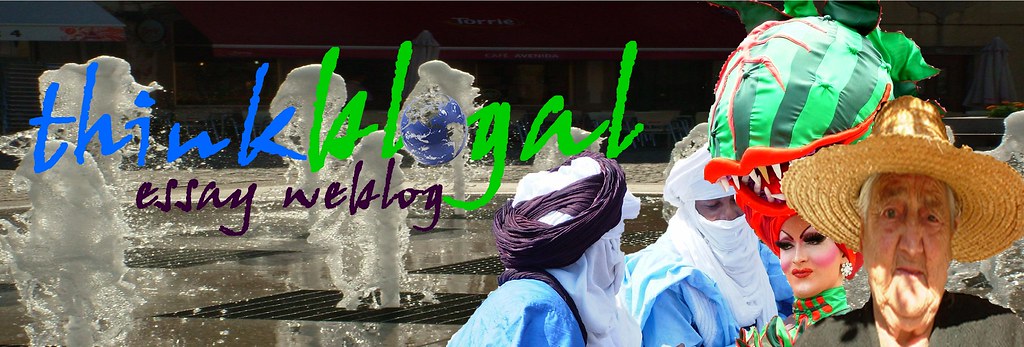November 4, 2005. In Brazil, not one eye blinks in front of the TV screen. The entire country stops to watch the final of the soap opera (novela, in Portuguese) América. According to Globo, the major Brazilian network that airs the program, the audience ratings reached an average of 66 points. Considering that each point corresponds to 47,5 thousand households, we arrive at the conclusion that this event drew a larger audience than the last world cup final. For Brazilians, this is truly a big deal.
Frenzied by a leak of what the country calls “gossip media”, viewers had one major question in mind: would the soap opera América deliver the first male homosexual kiss in the history of Brazilian TV? The answer was “no”. There was definitely a vibe between the characters Júnior and Zeca but they did not come close to anything like a kiss.
Although the reaction among viewers was mostly of frustration, no one took the blame for the censoring of the kiss. On one side, América’s screenwriter Gloria Perez told Globo Newspaper that the management of Globo TV had cut the scene. “We fought for it and I cannot deny that I was frustrated that it wasn't shown. The actors also were [frustrated]. After all, they had staged it with much enthusiasm," she said. On the other, Globo TV denied having cut the scene, saying there never was one gay kiss to begin with.
Who cares about cheesy soap operas anyway, one might ask. But in fact, soap operas can tell a lot about Brazilian society - one that is full of contradictions.
Here’s some context on Brazilian soaps: for those of you thinking of All My Children (see also at Wikipedia.org) and other televised instruments of torture, Brazilian soaps have nothing to do with the American style soaps. Taking into account Brazilian soaps’ influence and popularity, they would be closer to sitcoms, such as Friends or Sex In the City but, still, the comparison would not be accurate. One of the differences over American soaps is that they are not endless. They usually run for around six months, but less than a year. The better the ratings, the longer a story is allowed to run. They also run in prime time, six days a week and last for about 50 minutes.
Also, while in the States soap actors are forever damned to the land of mediocrity, some of Brazil’s best acting can be found in its novelas. Some examples are Fernanda Montenegro (Central Station) and Rodrigo Santoro (Behind the Sun) who have both gone into film after coming from a strong soap opera background.
It is worth analyzing some possible reasons for the rejection of the kiss and some aspects surrounding homosexuality in Brazilian soaps:
1. While there have always been gay characters in Brazilian soap operas, their representation has always been extremely stereotyped. Gay men in novelas are always funny and flamboyant because Brazilian TV refuses to take them seriously. The characters Júnior and Zeca escaped this pattern for being more “manly”. In fact, Zeca was a tough cowboy, while both actors are considered sex symbols in the country.
2. If you have ever watched Brazilian novelas (or Mexican, for the matter), you know that not one single day goes by without a heterosexual kiss. The fact that the gay kiss created such a fuss indicates, by itself, the country’s lack of spontaneity to deal with homosexuality. In a country celebrated all over the world by its physicality, it’s surprising how demonstration of public affection between gay men can be a big taboo.
3. On the opposite side, homosexual kisses between women have become more accepted in the past years and are even considered “a cool thing to do for curiosity” among teenagers. The explanation has more to do with macho culture than with tolerance. Love making between women has always been a common fetish among men (something even more cliché-ed than soap opera kisses). Keep in mind that, in a recent scene, the making-out actresses were two models and you get the idea. After playing a lesbian character that would eventually kiss her sexy girlfriend in the soap opera Senhora do Destino, the actress Barbara Borges went straight to the cover of Playboy. To advertise its edition with Barbara, the magazine went as far as to publish an ad in which the actress’ naked body was covered with lipstick marks.
These considerations leave me with one thought: the apparent Brazilian liberality is covered with many layers of hypocrisy and homophobia. It is puzzling that the country that hosts one of the biggest gay pride parades in the world also ranks first in violence against gay people. It is certainly a good start that gay men have started to be portrayed in a less comical way. However, I’ve learned from years of soap opera watching (all right: I’ll admit it!) that for gay characters, just as it is with all other characters, there is no “happy ending” without a kiss.













<< Home